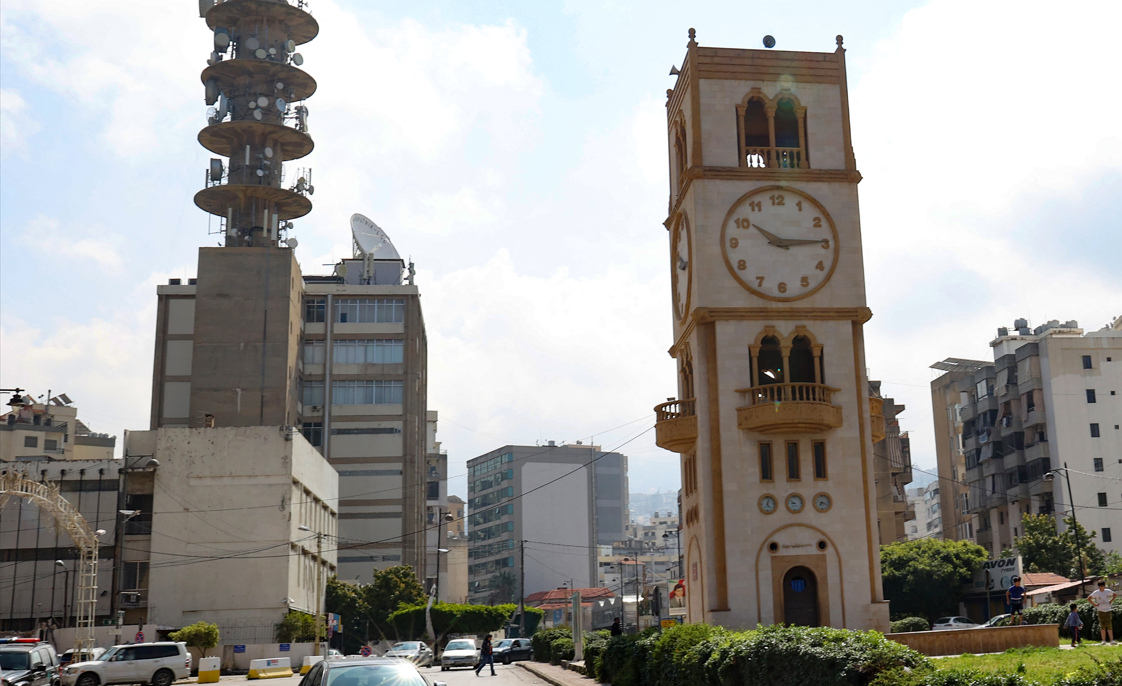Lebanese Minister of Communications, Johnny Corm, and subsequently by Prime Minister Najib Mikati, expressed their eagerness about finalizing a deal with the American company “SpaceX” to establish internet services through satellite communication, specifically the “Starlink” system, as an emergency contingency plan (Plan B) in case war breaks out in Lebanon.
One key question revolves around the accessibility of the Internet service to the Lebanese population—is it intended for the entire populace or merely for select privileged groups within the country? It also raises questions about Lebanon’s sovereignty over the internet and safeguarding citizens’ data.
Bassel Al Ayoubi, General Director of the Ministry of Telecommunications, disclosed through various media outlets that 150 “Starlink” devices were generously donated to be distributed to presidential, governmental, and relief entities. “Starlink,” owned by the American billionaire Elon Musk, endeavors to provide users with internet access via the company’s satellites, facilitated by small-sized yet costly receivers.
It is crucial to note that the operation and termination of this service are under Musk’s direct control, governed by policies he establishes. This includes requiring security clearances from the American and Israeli governments, even for humanitarian organizations—a precedent set after a significant campaign urging him to secure internet access in Gaza. Will the scenario differ in Lebanon?
Representatives Pose Inquiries to the Minister of Telecommunications
A group of representatives has raised concerns about the “suspicious nature of the party involved and the timing of this plan” in an inquiry directed last week towards “the caretaker government and the Minister of Telecommunications.”
Criticizing the lack of discernible public benefits associated with the proposed deal, the representatives have highlighted that engaging a satellite internet company like “Starlink” could introduce a competitor to the Lebanese telecommunications sector. This move, they argue, should align with the existing laws of the Lebanese state, given that the current actions undertaken by the Minister of Telecommunications appear to contravene Lebanese Telecommunications Law No. 431.
Among the representatives posing these questions—Najat Saliba, Paula Yacoubian, Melhem Khalaf, Ibrahim Mneimneh, and Firas Hamdan—Representative Yassin Yassin has expressed reservations about the expediency of implementing “Plan B,” deeming it as “the last alternative solution for providing communications and internet in Lebanon.” Yassin further underscores a palpable apprehension regarding the potential satellite internet deal in Lebanon, fearing that it might be confined to a specific entity outside the legal framework. Notably, he points to Law 431, which grants exclusivity of the internet to the Lebanese state, as a crucial factor in this context.
In their inquiry, the representatives outlined the foundational elements of the emergency plan, emphasizing that it should encompass all available terrestrial and satellite systems and technologies, both wired and wireless. They stressed the importance of utilizing diverse means to secure international and official communications related to emergencies, extending beyond satellite solutions to include amateur devices and various wired and wireless networks, not exclusively limited to satellite internet.
The emergency plan, presented verbally to parliamentary committees, is scheduled for discussion in the upcoming cabinet session next week. However, the representatives express frustration as they have not been granted access to its contents. Representative Yassin characterizes this situation as “dictatorial decision-making by the Minister of Telecommunications, manipulating circumstances in favor of Starlink.”
Minister of Telecommunications, Johnny Corm, has criticized the reactions surrounding the emergency plan. In an interview with SMEX, he denied any intention to provide free services to “Starlink” in the future, ensuring that no exclusivity would be granted to an internet company without proper legal status or licensing under the guise of an emergency. He categorized the “Starlink” file within an experimental framework, emphasizing that it did not incur significant costs for the Lebanese state.
In an interview with SMEX, an anonymous communications’ expert highlighted that the trial period initiated by the Minister of Telecommunications with “Starlink” does not necessitate Cabinet approval. However, the expert expresses concern based on Lebanese precedents, suggesting that what begins as an exception might become a norm.
This raises fears that “Starlink” might be licensed under the guise of an emergency in an illicit manner, potentially resulting in the state forgoing revenues while providing free services to “Starlink,” thereby depriving the treasury of substantial funds, amounting to hundreds of millions of dollars.
The expert also questions the efficacy of “Plan B” in the event of a widespread communication and internet outage caused by a potential targeting of submarine cables by Israel. The concern is whether “Starlink” devices can effectively secure communication and internet access for people in Lebanon in such a scenario. Additionally, there’s a query about whether the Lebanese government would wait for approval from the American and Israeli governments to provide internet and communication services to its citizens, potentially leaving others without access.
Representative Yassin asserts, regarding “Plan B” in its entirety, that the Minister of Telecommunications is using the emergency plan as a pretext without obtaining the Council of Ministers’ permission. He contends that representatives reject the irregularities surrounding the “Starlink” case, aiming to prevent its normalization without proper legalization.
In the absence of satisfactory responses from the Council of Ministers and the Minister of Telecommunications, Yassin confirms that representatives will explore legal avenues, including resorting to judicial authorities such as the Public Prosecution and the State Shura Council to address the matter.
Alternative Solutions such as VSAT: Why Overlook Them?
The monthly subscription cost for “Starlink” home use starts at 72 euros, with the satellite device priced starting at 450 euros, as indicated on the company’s official website. However, this cost is deemed very high for ordinary users in Lebanon, making it affordable only for the affluent class or private companies, according to the communications sector expert.
In contrast, Lebanon already has access to the “Very Small Aperture Terminal” (VSAT) technology, a service licensed since 2007, operating via regional satellites like “Arabsat.”
However, Minister Corm mentioned meetings with “Arabsat” while noting that operational capabilities of this service are limited, making it challenging to distribute to a large number of subscribers.
The minister’s response raises a pertinent question for the communications expert. Unlike “Starlink” services, VSAT services can be leveraged by extending a satellite over multiple central networks, utilizing Lebanon’s existing communications infrastructure network to reach a broader subscriber base.
The expert suggests that this is a task that is not individual-centric but one in which the state can actively participate. Such an approach could potentially enable Lebanon to receive internet services via satellite in the event of damage to submarine cables, without the need for external permissions or restricting satellite internet access only to those who can afford it.
In response to SMEX’s inquiry about VSAT technology, “Touch,” one of the two telecom providers in Lebanon, highlighted that setting up this service does not require much time once the necessary systems are secured. They emphasized having local technical personnel capable of operating the service despite its operational costs. Additionally, “Touch” shared that they have learned about “Ogero” working on providing a VSAT service with the objective of ensuring connectivity to some of the main centers in the country.
The communications’ expert interprets the disparity between the minister’s stance and the responses from telecommunications companies as an indication of the need for coordinated efforts. They stress the importance of working on a unified plan that ensures secure communication for the general public, main centers in the country, and relief organizations, extending beyond a singular focus on the internet and acknowledging the relevance of diverse solutions. Such a comprehensive strategy keeps Lebanon’s options for connectivity open.
Local Roaming between Networks for Secure Voice Communication
One of the solutions seemingly disregarded by the Ministry of Telecommunications is the activation of local roaming technology between networks (National Roaming). This technology would allow users of both “Touch” and “Alfa” cellular networks to utilize the transmission infrastructure of each other. For instance, in the event of disruptions to the “Alfa” network’s transmission or if a station is targeted by Israel, users could activate the feature to switch to “Touch” services, according to the expert.
However, Minister Corm contends that activating this feature is unfeasible. He argues that it doesn’t function well in crowded areas, exposing the networks to vulnerability during increased pressure on the system; therefore, it is only limited to remote areas.
The discussion on installing mobile switches, emphasized by Minister Corm, centers on the necessity for these stations to ensure secure placement, particularly in areas needing strengthened transmission and internet capabilities for safety. These stations are typically designated for large-scale political festivals and celebrations. Corm stressed the difficulty of repairing or maintaining these stations if they are targeted or disrupted.
Contrastingly, a source from one of the cellular companies explains to SMEX that activating local roaming between networks (National Roaming) necessitates securing greater capacity in data cables. For instance, if a network is designed for two million subscribers, accommodating an additional 100,000 users from another network might exceed its capacity, risking service interruptions or internet slowdowns.
The source further notes that the sector’s two networks have not been updated since 2019 due to a lack of financial appropriations. The absence of regular updates leaves the equipment outdated, especially given the economic crisis that has led to the halt of many projects. Recent solutions introduced are described as typical Lebanese “patchwork solutions.”
The communications expert said immediate priority should be securing voice communications, essential for relief agencies like the Red Cross and Civil Defense, as well as for citizens relying on both fixed and mobile lines. The latter questions the focus on the internet as the primary solution and using it as a pretext to overlook other potential alternatives.
Ignoring the Reality of Communications to Focus on Emergency Plans
Over the past two weeks, areas in South Lebanon such as Tyre, relatively distant from the border, experienced the interruption of communication and internet services due to a station running out of diesel, as reported by “Alfa,” one of the two telecom providers in Lebanon.
The company stated that maintenance teams were unable to reach the station until a security permit from the Lebanese Army was secured. “Touch”, in response to SMEX’s questions, also emphasized cooperation with the Lebanese army, specifically in maintaining networks on the border and ensuring generator tanks were filled with diesel.
In this context, the Minister of Telecommunications did not directly address the importance of activating the emergency plan in remote and southern regions to prevent isolation from the world in terms of communication and the internet. Instead, he said that the plan requires investments in millions of dollars that are currently unavailable.
The emphasis on “Starlink” amid logistical challenges raises questions about the priorities of the Ministry of Telecommunications and the state-owned telecommunications entities in Lebanon—namely, the two cellular companies, and “Ogero” authority for fixed telephone and internet.
The recent communication breakdowns in southern Lebanon, due to issues as basic as securing diesel for electricity generators, underscore a fundamental logistical shortcoming. The Minister disclosed to SMEX that the emergency plan, involving the Ministry, “Ogero,” “Alfa,” and “Touch,” includes provisions for securing fuel and ensuring the continued operation of transmission stations.
All telecommunication companies in Lebanon are state-owned, and in times of emergency, coordination is crucial. The communications expert highlights the necessity for unified operations, stressing that in emergencies, all communications should be managed from a single operating room. He concludes by questioning the impediment preventing these state-owned entities and agencies from collaborating effectively to secure communications and ensure connectivity during times of war and emergency.



